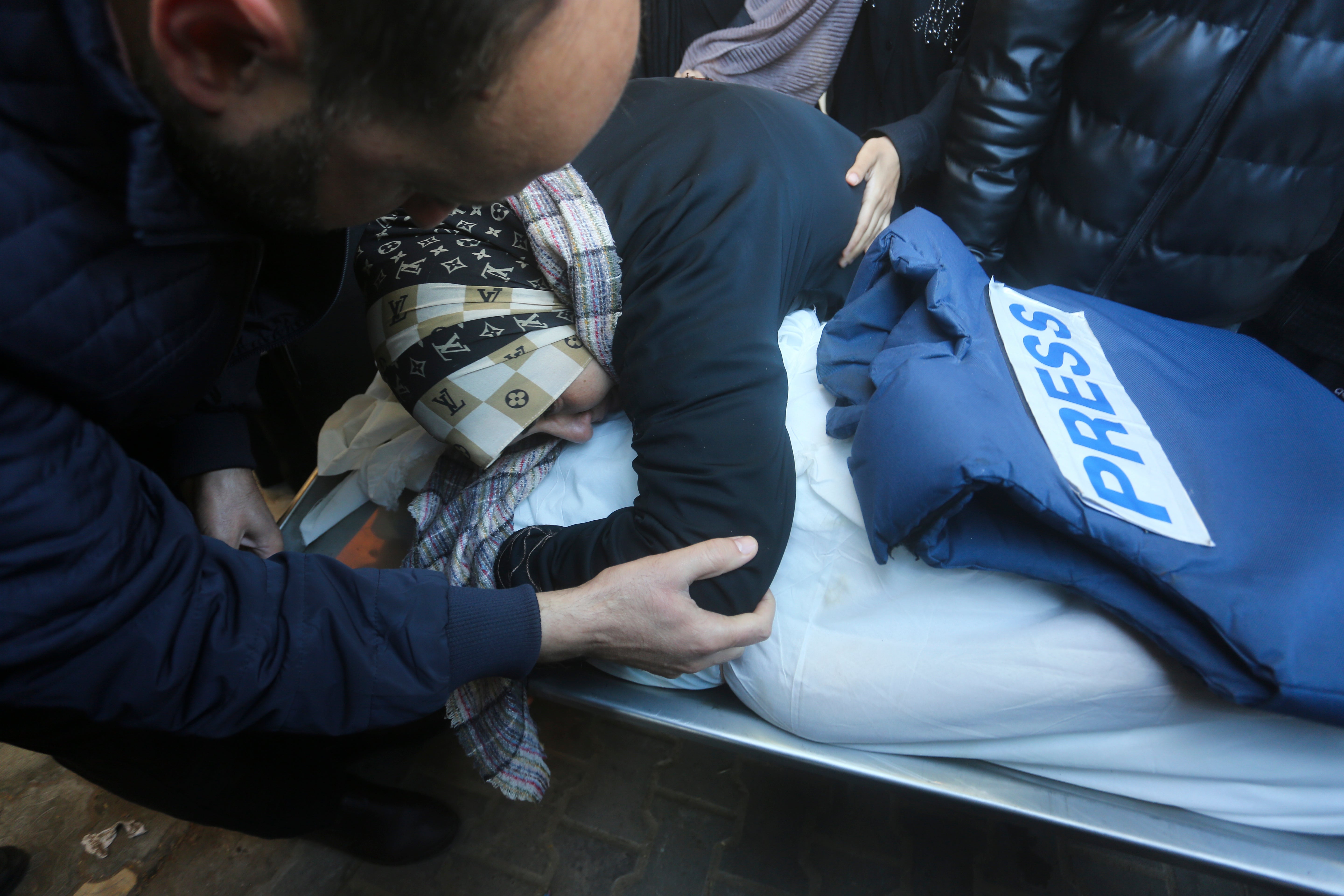Journalism leaders express support for media covering the Israel-Hamas war, ask for more protection
Three dozen leaders at news organizations around the world are expressing solidarity with reporters doing the dangerous work of covering the Israel-Hamas war in Gaza

Three dozen leaders at news organizations around the world have signed a letter expressing solidarity with journalists in Gaza, calling for their safety and freedom to report in the war zone.
The letter, released Thursday, was spearheaded by the Committee to Protect Journalists, which said at least 89 journalists and media workers have been killed in the Israel-Hamas war, the vast majority of them Palestinians.
Leaders at The Associated Press, The New York Times, The Washington Post, Los Angeles Times, Reuters, New Yorker, CNN, NBC News and ABC News have signed on. International signatories include the BBC, Der Spiegel in Germany, Agence France-Presse, Daily Maverick in South Africa, Nawaiwaqt Group in Pakistan and The Asahi Shimbun in Japan.
More organizations are welcome to participate, said Jodie Ginsberg, CEO of the Committee to Protect Journalists.
“We felt that it was important that we show that the international journalism community stands in solidarity with our Palestinian colleagues,” Ginsberg said.
The letter says that journalists are civilians and that Israeli authorities must protect them as noncombatants in accordance with international law. Anyone violating this should be held accountable, it said.
“Attacks on journalists are also attacks on truth,” the letter said. “We commit to championing the safety of journalists in Gaza, which is fundamental for the protection of press freedom everywhere.”
Israel is only mentioned once in the letter. While CPJ has advocated for more access for journalists in Gaza, the letter steered clear of that subject because it was important to focus on solidarity, Ginsberg said.
She would not comment on whether any news organization contacted chose not to participate.
Bookmark popover
Removed from bookmarks